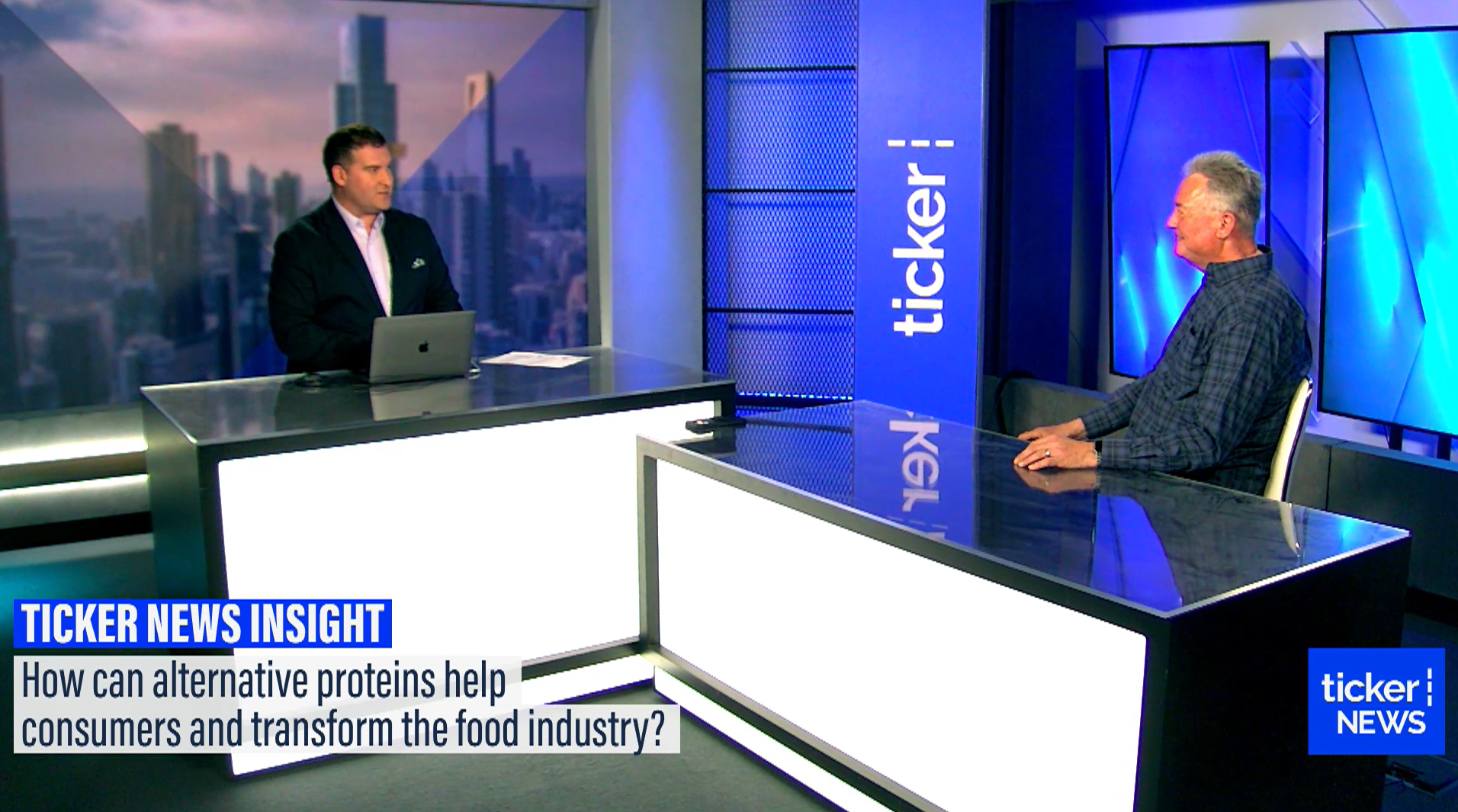Addressing global greenhouse gas emissions from animal agriculture, in particular methane production, is critical to slowing down the rates of climate change. In an interview with Ahron Young from Ticker News Insight, Executive Director Dr Simon Eassom explains how Food Frontier and the wider alternative proteins industry are tackling these environmental concerns by making centre-of-plate protein options available without the need for animals.
Why would you get involved with something like this? What’s the reason why Food Frontier exists?
There are a number of reasons, and the manufacturers all have their own missions. But, in general, we’re looking to change food systems to enable us to provide sustainable sources of protein into the future, particularly as the world population grows towards 10 billion people by 2050. Our current systems of generating protein are not sustainable, given the emissions that are generated by animal agriculture.
You’re talking cows and methane?
Typically, people understand greenhouse gas emissions in terms of things like carbon dioxide. But animal agriculture contributes about 26% of total global greenhouse gas emissions, and of that, about 40% of those emissions come from methane production. This is typically through ruminant animals such as cattle and sheep but, also some of the gases from food waste that go into the atmosphere. Methane is far more damaging in the short term than carbon dioxide. It’s something we have to address to slow down rates of global warming.
Is much being done to address this problem?
There is work being done across various sectors. For example, in the animal agriculture sector, scientists are looking at ways in which we can feed animals with things like Asparagopsis seaweed, which cuts down on methane emissions. But it’s small bits and pieces. We do have to have a wholesale approach from the government and industry to look at ways in which we can reduce those emissions.
How do you do that? What’s the focus for you?
What the alternative protein sector looks to do is provide people with genuine alternatives so that they can make personal decisions both from the perspective of health and from environmental concerns. We can provide them with recognisable alternative centre-of-plate type foods that are not coming from animal agriculture. We’re talking about plant-based meats, cultivated meat as a process of cellular agriculture, precision fermentation that produces non-dairy milk and cheese products, and even insect protein.
What growth have we seen in plant-based meat over the past few years and what’s the opportunity that you see?
It’s a relatively new industry, but we’ve seen significant growth in the last four or five years. Everybody’s heard of the big international players, Beyond Meat and Impossible Foods, but we’re now seeing these as well as Australian-manufactured products in Coles and Woolworths. The big thing that the market is chasing at the moment is being able to provide people with equivalent foods that they recognise and understand, such as chunks of meat—whether it’s chicken style or beef style or whatever—that they can put into familiar dishes. We are well advanced in what we call utility foods: burgers, sausages, meatballs, mince. The next step is to move into a steak or cutlet-type area, and that’s where cultivated meat comes in because we’re producing and generating things that look like a steak, grown in bioreactors instead of coming from an animal.
It feels like this is the moment where you have a convergence of concerns about climate change. When we talk about a growing population, is the concern that if all of these people are eating meat that comes from cows, it becomes a climate crisis?
We know that meat consumption is going up. It’s not going down. It’s going up because the population is growing, but it’s also going up because people in developed countries, as they get wealthier, seek to eat more meat. But let’s put this in perspective. The American diet is very heavily meat-focused, virtually in every single meal of the day. If every American, for example, were to replace one meal per day where they eat meat with non-meat, then it would be the equivalent of taking 27 million cars off the road. The impact is huge.
